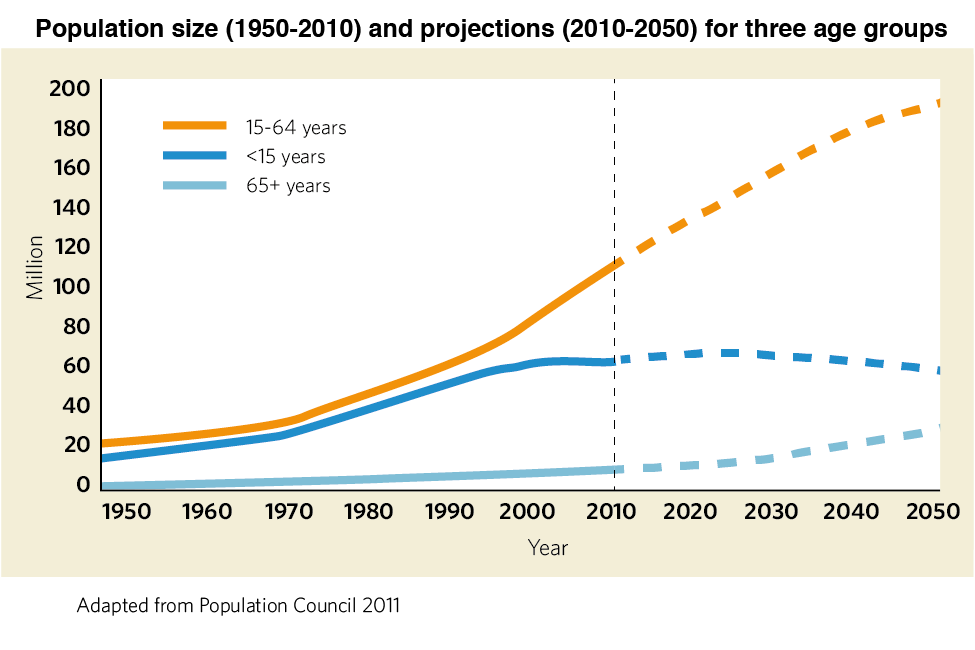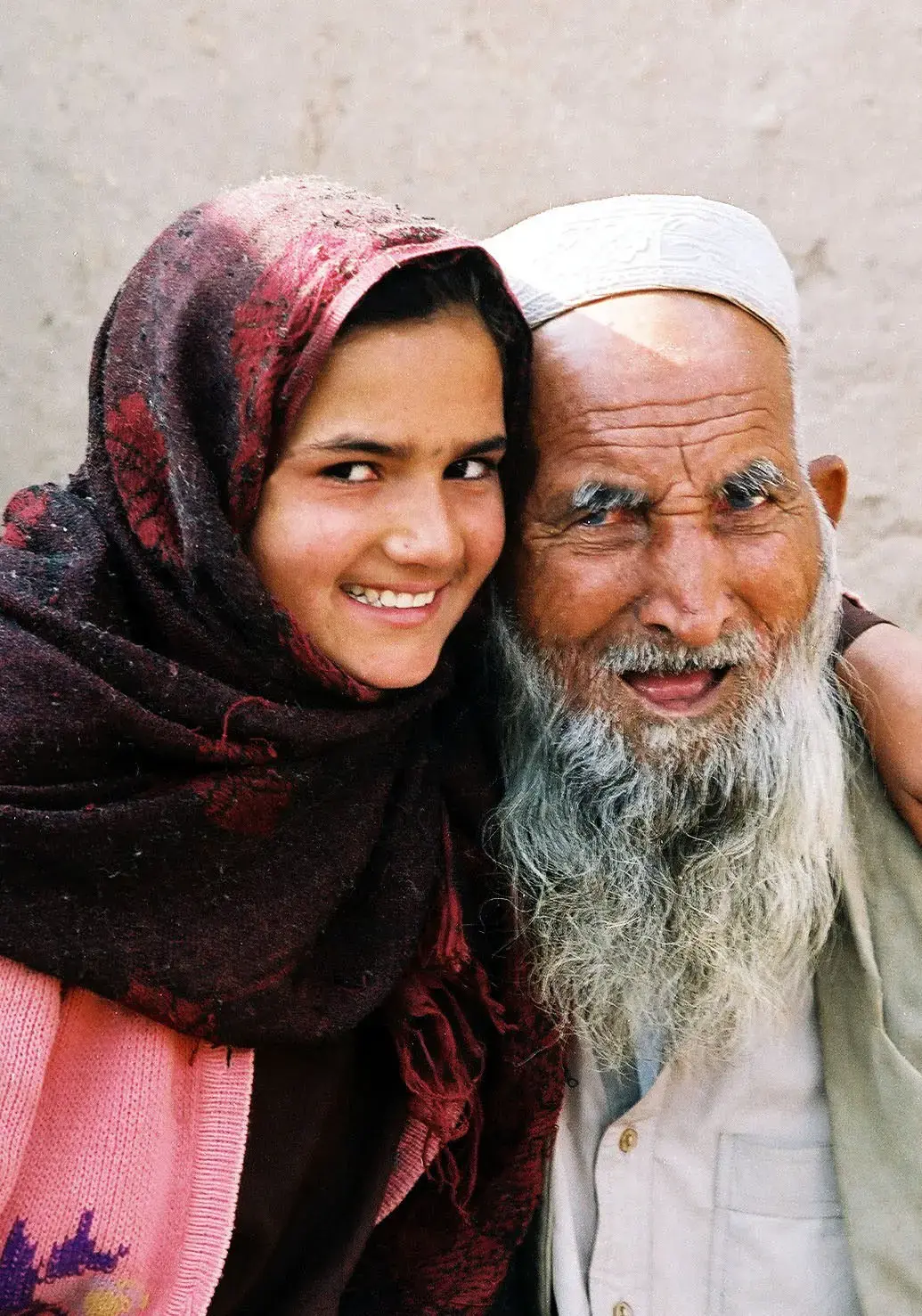As the world's sixth most populated country, totaling 207 million in 2017 (Census 2017), Pakistan contends with the risk of natural disasters, a large and growing youth population, entrenched poverty and inequality. An estimated 3.1 million people, of which 2.1 million will be young, are expected to enter the labour force in Pakistan every year over the next four decades, reaching a projected 181 million by 2050 (Population Council estimates).
Although this poses significant challenges to delivering reproductive health services, it is also a pivotal point for the country. The future of Pakistan’s social and economic prosperity hinges on urgent investments in education, health and livelihood opportunities now. This is harnessing the “demographic dividend”.
What is the demographic dividend?

The demographic dividend - also known as the demographic bonus - refers to the economic growth that results from a significant increase in the skilled working-age population (age 15-64). These changes are due to people living longer lives and having smaller families. With a growing skilled youth population that fill the labor force and a smaller population that is dependent on it, a time-limited window of opportunity is created for economic growth and family wellbeing.
Pakistan has some of the greatest demographic opportunities for development in the world as a growing youth population enters adulthood. The demographic dividend can only be achieved with adequate investments in the education and skills of youth, harvesting the fruits of long-term human capital development.
Education, health and employment: key to realizing a demographic dividend
Improved health, especially for adolescents, young people and women, access to education and adequate employment opportunities are key to realizing the demographic dividend.
Pakistan population is currently growing at an unsustainable rate (2.4% annual average), putting stresses on the social and economic infrastructure. When the number of dependents grows faster than the capacity to support the population, health institutions, schools and job opportunities deteriorate. People’s potential is derailed by poor access to health care and education, gender inequalities, poverty, disasters, child marriage and early and unintended pregnancies.
Pakistan currently faces challenges in coverage and quality of health care, including inadequate sanitation, unsafe drinking water, lack of immunizations against polio and measles and widespread prevalence of communicable diseases such as tuberculosis, hepatitis, and HIV.
Education indicators in Pakistan are lagging behind many other countries with similar levels of per capita income. According to a recent study, Pakistani educational system has failed to provide the basic infrastructure for quality and gender balanced education (Goujon and Wazir 2011).
The country’s poor economic performance in recent years has had an adverse effect on realizing the expected gains. Without simultaneous investments in job creation, effective policy interventions, good governance, infrastructure and a healthy business climate, Pakistan’s progress will continue to be constrained.
A window of opportunity for economic and social growth
To open the window of opportunity for the demographic dividend, Pakistan needs to reduce fertility and invest in the growing youth “bulge” entering the labour force. If births begin to decline each year, the young dependent population will also decline. This frees up resources to invest in the health, education and economic infrastructure of the country.
UNFPA’s role
UNFPA works with the government of Pakistan and other partners to better understand population dynamics in order to truly reap the demographic dividend, including supporting census and population surveys, engaging government in effective policy interventions and action plans and providing guidance on investing in the rights and dignity for all. UNFPA works with partners at all levels to ensure women and young people receive crucial sexual and reproductive health information and services that contribute to the demographic dividend.
UNFPA, in collaboration with the Population Council, published in 2013 the book, “Capturing the Demographic Dividend in Pakistan”, to ensure that key policy makers, professionals, academics and students recognize the important linkages between population and development.


